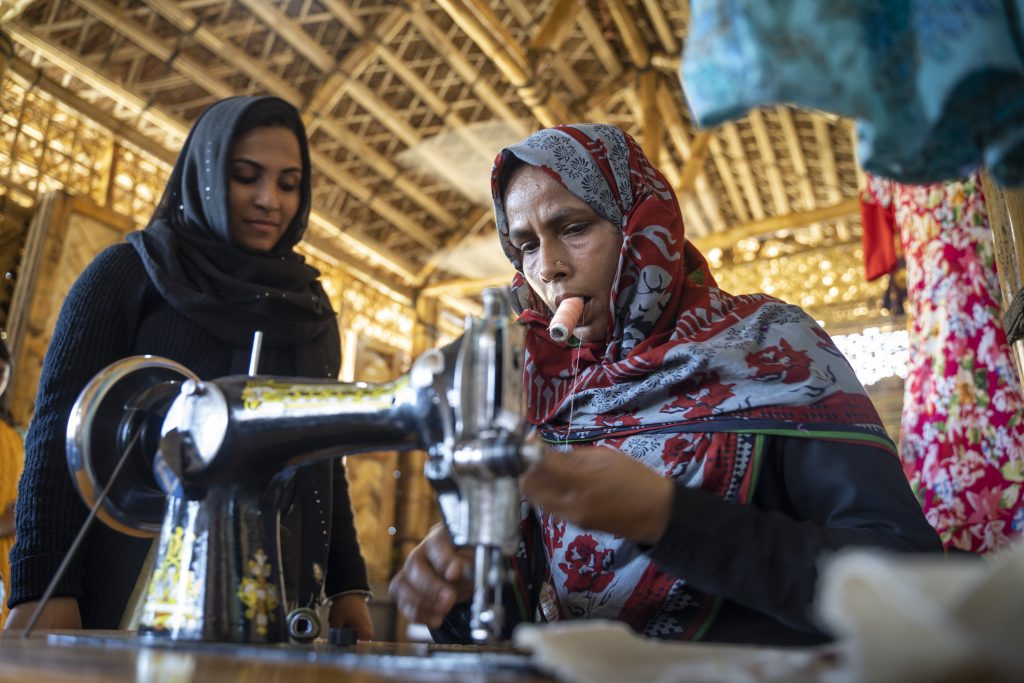
23 Aug 2023 – The UN and partners call for renewed commitment from the international community for financial support to sustain the humanitarian response and political support to find solutions for nearly one million Rohingya refugees in Bangladesh.
25 August marks six years since over 700,000 Rohingya women, men and children from Myanmar fled to Bangladesh. They joined hundreds of thousands of other Rohingya who had previously sought refuge in the country.
As the humanitarian condition in the world’s largest refugee settlement worsens, the challenges surrounding this protracted crisis continue to increase. Steep funding decline forces humanitarian actors to focus on the most critical and life-saving needs. For the first time, it has led to the reduction of refugees’ food assistance, raising concerns about cascading dramatic consequences: rising malnutrition, school dropout, child marriage, child labour and gender-based violence.
With their strength and resilience, the Rohingya refugees have formed the backbone of the humanitarian response over the past six years and supported the communities hosting them.
UN and partners urge support to enable Rohingya refugees to benefit from education and skills development, vocational training, and other forms of capacity-building. This will equip refugees for their eventual return and ensure their dignity, safety, and productivity in Bangladesh. This can empower them to address some of their needs, as the refugees do not wish to rely on diminishing humanitarian aid.
A dignified and sustainable return to Myanmar remains the primary solution to this crisis. Rohingya refugees continue to tell us they want to return to Myanmar when it is safe to do so voluntarily. The international community must renew its efforts to make that possible. As the United Nations remains ready to support efforts to create conditions conducive to sustainable return, the UN and its partners need to be provided unimpeded, meaningful, and predictable access in Rakhine State in Myanmar, including assisting, and monitoring the return of refugees.
The collective goal should be to ensure Rohingyas’ voluntary return to Myanmar — to their places of origin or choice, being able to move freely and access documentation, citizenship pathways, services, and income-generation opportunities to rebuild their lives.
Until they can return, they remain in refugee camps in an area off the coast of the Bay of Bengal, which is extremely vulnerable to cyclones, flooding, landslides, fire outbreaks and the impacts of climate change. These devastate the congested camps, and their frequency barely leaves time to rebuild shelters made of bamboo and tarpaulin before the next disaster strikes. UN continues to prioritise a climate action strategy, advocating for weather-and fire-resistant refugee shelter materials to save millions of dollars in maintenance and rebuilding costs.
Hosting nearly one million Rohingya refugees, Bangladesh has demonstrated humanitarian commitments and a generosity that must be acknowledged through continued investment in Rohingya refugees and Bangladeshi host communities. The international community must step up to share responsibility for the response. Stakeholders are encouraged to expand their support and commitments through pledges in support of the Rohingya situation at the Global Refugee Forum in Geneva in December 2023.
Humanitarian agencies have appealed for $876 million this year to assist around 1.47 million people, including Rohingya refugees and local Bangladeshis. However, as of mid-August 2023, funds for the Joint Response Plan only reached 28.9 per cent of this appeal, dismally highlighting the need for consistent and predictable financial backing to prevent a broader humanitarian crisis.
